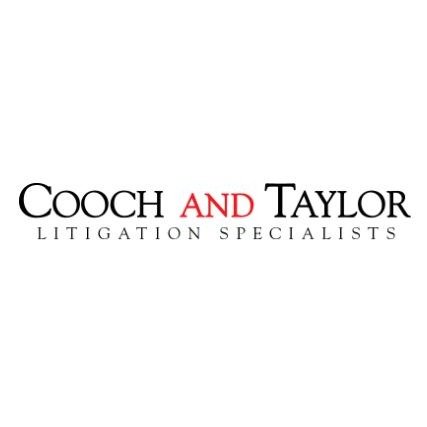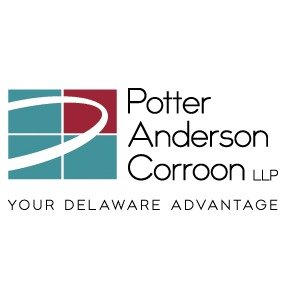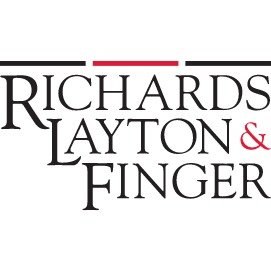Best Antitrust Litigation Lawyers in Delaware
Share your needs with us, get contacted by law firms.
Free. Takes 2 min.
Or refine your search by selecting a city:
List of the best lawyers in Delaware, United States
About Antitrust Litigation Law in Delaware, United States
Antitrust litigation in Delaware refers to legal proceedings concerning alleged violations of antitrust laws, which are designed to promote fair competition and prevent monopolies or unfair business practices that could harm consumers or other businesses. Delaware is home to a large number of corporations and serves as the legal domicile for many major companies. This unique status makes it an important jurisdiction for antitrust cases, particularly those involving mergers, acquisitions, and other business conduct that can impact competition. Antitrust litigation may arise in both federal and state courts and typically involves claims under the Sherman Act, the Clayton Act, the Federal Trade Commission Act, and state-level antitrust statutes.
Why You May Need a Lawyer
Antitrust law is complex and often involves high-stakes business practices, economic analysis, and significant financial risks. Individuals and companies in Delaware may need an antitrust litigation lawyer for a variety of reasons, such as:
- Facing investigation from the Department of Justice or Federal Trade Commission
- Being sued for alleged anticompetitive conduct, such as price fixing, bid rigging, or market allocation
- Challenging a merger or acquisition suspected of reducing market competition
- Pursuing a lawsuit if your business has been harmed by a monopolist or cartel
- Defending against civil or criminal antitrust charges
- Understanding compliance obligations to avoid future litigation or government scrutiny
- Seeking guidance on joint ventures, partnerships, or business practices that could raise antitrust issues
Legal counsel is crucial to analyze risks, respond to court filings, negotiate settlements, and mount a strong defense or prosecution in these often technically complicated cases.
Local Laws Overview
Delaware does not have a separately codified state antitrust law but relies on the common law and applies federal statutes to antitrust matters filed in its state or federal courts. Much of Delaware's antitrust litigation is handled in federal court, with the United States District Court for the District of Delaware being a frequent venue. Federal laws such as the Sherman Act and Clayton Act provide the framework for most antitrust claims.
Delaware is known for its well-established body of corporate law and is the preferred incorporation state for thousands of businesses, leading to a large volume of business litigation, including antitrust disputes. Federal agencies, such as the Department of Justice Antitrust Division or the Federal Trade Commission, also frequently operate in Delaware, investigating potential violations or reviewing mergers involving Delaware-incorporated entities.
The Chancery Court, famous for its expertise in corporate law, may be involved in cases that touch on antitrust issues in the context of fiduciary duties and corporate governance, although most antitrust claims are heard in federal court.
Frequently Asked Questions
What activities are generally prohibited under federal antitrust laws in Delaware?
Federal antitrust laws prohibit practices such as price fixing, bid rigging, market allocation, monopolization, and certain types of exclusive dealing that harm competition or create unfair advantages.
What types of businesses are most frequently involved in antitrust litigation in Delaware?
Large corporations, especially those incorporated in Delaware, as well as businesses involved in mergers or acquisitions, are often parties in antitrust litigation. However, any business, regardless of size, can be involved if alleged to have engaged in anticompetitive practices.
Can individuals bring antitrust claims in Delaware courts?
Yes. Both businesses and individuals who have been harmed by antitrust violations can file private lawsuits in Delaware federal court to seek damages or injunctive relief.
What government agencies enforce antitrust laws in Delaware?
The United States Department of Justice Antitrust Division and the Federal Trade Commission are the primary agencies enforcing antitrust laws in Delaware. State attorneys may also be involved in certain cases.
How are antitrust cases typically resolved?
Antitrust cases may be resolved through settlement, dismissal, court judgment, or appeal. Some cases are also resolved via consent decrees or by agreement to change business practices.
What penalties can result from an antitrust violation?
Penalties can include substantial monetary damages, injunctive relief, orders to divest assets or stop certain conduct, and in criminal cases, imprisonment for responsible individuals.
Is it common for Delaware companies to be investigated for antitrust concerns in mergers?
Yes. Because many mergers and acquisitions involve Delaware corporations, federal regulators frequently review these transactions to assess potential anticompetitive effects.
How long does antitrust litigation typically last in Delaware?
The duration varies. Simple cases may resolve in months, but complex antitrust litigation, especially involving large businesses and multiple parties, can take several years.
Are there defenses available to companies accused of antitrust violations?
Yes. Common defenses include arguing the conduct was pro-competitive, justified for legitimate business reasons, or that the evidence fails to prove a violation.
When should I consult an antitrust lawyer in Delaware?
You should consult a lawyer as soon as you become aware of a government investigation, receive a lawsuit, plan a significant business combination, or suspect anticompetitive conduct affecting your business.
Additional Resources
If you are seeking more information or require guidance on antitrust litigation in Delaware, the following resources can be helpful:
- United States Department of Justice, Antitrust Division
- Federal Trade Commission, Bureau of Competition
- United States District Court for the District of Delaware
- Delaware State Bar Association, Antitrust Law Section
- Delaware Chancery Court (for corporate governance disputes involving antitrust issues)
- Local law libraries and business advocacy groups
Next Steps
If you believe you are involved in an antitrust issue or have received notice of investigation or litigation, take the following steps:
- Document all relevant information and correspondence, including business practices or suspected violations.
- Consult with an experienced antitrust litigation attorney who understands Delaware law and federal statutes.
- Follow your attorney's guidance when responding to investigators or court proceedings to avoid unintended admissions or actions that could harm your case.
- Assess your business practices to ensure compliance with antitrust laws and implement any recommended changes.
- Stay informed by reviewing relevant resources, attending informational seminars, or participating in business associations knowledgeable about antitrust risks and remedies.
Navigating an antitrust dispute can be challenging, but with the right legal support and resources, you can protect your rights and work towards a favorable outcome.
Lawzana helps you find the best lawyers and law firms in Delaware through a curated and pre-screened list of qualified legal professionals. Our platform offers rankings and detailed profiles of attorneys and law firms, allowing you to compare based on practice areas, including Antitrust Litigation, experience, and client feedback.
Each profile includes a description of the firm's areas of practice, client reviews, team members and partners, year of establishment, spoken languages, office locations, contact information, social media presence, and any published articles or resources. Most firms on our platform speak English and are experienced in both local and international legal matters.
Get a quote from top-rated law firms in Delaware, United States — quickly, securely, and without unnecessary hassle.
Disclaimer:
The information provided on this page is for general informational purposes only and does not constitute legal advice. While we strive to ensure the accuracy and relevance of the content, legal information may change over time, and interpretations of the law can vary. You should always consult with a qualified legal professional for advice specific to your situation.
We disclaim all liability for actions taken or not taken based on the content of this page. If you believe any information is incorrect or outdated, please contact us, and we will review and update it where appropriate.
Browse antitrust litigation law firms by city in Delaware
Refine your search by selecting a city.












